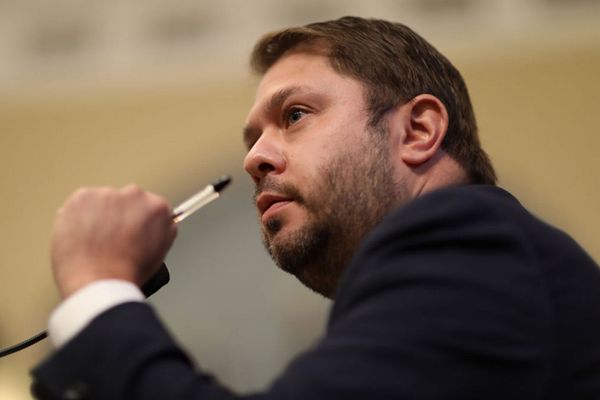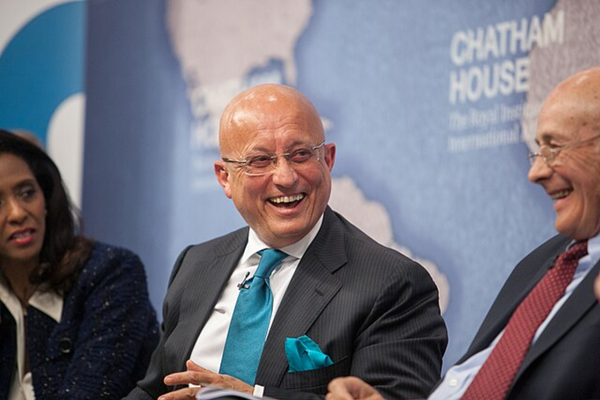Aldo Suarez, 21, of Chicago's South Side, likes to play the video game Halo. Another favorite? Building McLaren vehicles with Lego Technic sets. And he prefers the older “Matrix” movies, Courage the Cowardly Dog, and walking North Riverside and Woodfield malls when he can. And his favorite food is tofu.
“My cholesterol is very high, so I have to lower that down. They also say my blood pressure is too high because of salt. I want to lower all of that down,” he said. “That’s why I’m going for tofu.”
The other thing the Ray Graham Training Center student is going for is a job at Michael’s, the arts and crafts store. Suarez is engaged with his first job at Jewel-Osco, corralling carts. It’s a position that Urban Autism Solutions (UAS) West Side Transition Academy helped him obtain. Academy staff assists high schoolers with autism and related challenges with finding gainful employment and job readiness — from filling out job applications, writing resumes, and learning interviewing skills and any additional assistance once employed to make sure their segue into the new entry level position is a good one.
“Michael Tracy helped me when it comes to interviewing and communications,” Suarez said.
Tracy has been helping the UAS population secure entry-level positions since 2019. He and wife Julie founded the Urban Autism Solutions program in 2012 after their son John was diagnosed with autism as a toddler.
The organization was meant to address social programs, employment and residential concerns. The Chicago nonprofit has grown into a multitiered program with a residential component, a 1.2-acre farm in Chicago’s Medical District (Growing Solutions Farm), the academy (a program that serves West Side public high school students with IEPs (ages 16-22) with speech language and occupational therapies, social and emotional behavior learning with social workers and licensed clinicians) and the Life Lab, a West Side townhouse where students with more severe functional challenges practice daily life skills such as laundry, cooking, and self-care.
“We’re working with five high schools and about 90 students right now,” Michael Tracy said. “We have a nice space here in Little Italy but we would like to expand to serve more schools, more students. We’d like to hire more staff ultimately — there’s a huge demand out there. So we’d like to help supply it as best we can.”
Tracy said jobs are the biggest focus at the moment, which coincides with October being National Disability Employment Awareness Month. Data shows unemployment and underemployment are higher for people with disabilities.
“The employment piece has become a far more robust portion of what we’ve been doing over the last three years,” UAS Executive Director Heather Tarczan said. “Not every student might be employment ready. So if a class of 15 students joins us, maybe there’s two or three students that are ready by January for employment. But perhaps the following year when they’re another year older, there might be five or six candidates that are ready.”
Tracy is the conduit for employers and aspiring employees. He said as long as the market is strong, he is going to try to keep placing people in jobs of their choice. Tracy helped Alejandro Sanchez find his job at dd’s Discounts. Having reached the six-month mark at that job, the 21-year-old says his love of fashion led him there. Prior to dd’s, he’s worked at the Chicago Lighthouse over the summer doing photography projects, interned with city government, and interned to UAS’ communications director Sharon Parmet. He’s saving his money to buy a house for his grandmother.
“I was working with Walmart first, but I did not like pushing carts,” Sanchez said of his three-month stint. “And it was during December.” He said pushing carts in the cold weather gave him anxiety.
When he’s not working, Sanchez is playing and watching soccer, and taking photographs in Millennium Park. He wants to pursue photography as a career, and has set his sights on internship opportunities that will help him on that path.
The four-day a week academy does all it can to help young adults, with five full-time employees operating on the second floor of a former church school. Young adults with special needs age out of secondary school when they turn 22 years old, and subsequently lose the school-based programs and resources they have grown accustomed to. UAS provides programming and services to help the young adults transition to adulthood. Teachers accompany their students on their designated day of the week at the academy on the CTA and through a partnership with Lyft, Urban Autism Solutions aid employed students with free rides to and from work.
“We are providing what I would consider to be complementary services to what’s being taught in a traditional classroom,” Tarczan said. “We’re the community partner that’s providing the community integration programs, internships, job experiences, and some more intense clinical experiences than perhaps what they’re getting in school.
“We’re not teachers, we’re not educators, but what we do have are clinicians where we’re bringing together best practices and people who have skills in speech and language therapy, behavior therapy, social work, who are able to provide our students with intensive social/emotional learning. Skills like speech and language and skills in behavior therapy — really providing those additional sets of skills to complete that picture.”
Safety and proximity to jobs are paramount when trying to create a win-win for the employer and for the student, Tarczan added. She said young adults with UAS are just like anybody else, they just want a foot in the door when it comes to employment and be able to prove to not only themselves, but to everybody else that they can do what their siblings are doing, what their parents are doing, or what their friends are doing.
“They want to bring home a paycheck and they want to contribute to their families,” she said. “And they want to be able to eat out with their friends and buy cool shoes.”
Before leaving, Sanchez smiled while sharing his favorite quote: “I will go wherever the wind takes me”; he then inquired about internship opportunities at the Chicago Tribune.







